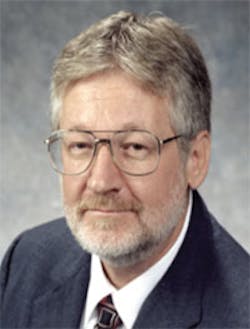Increased emphasis on risk mitigation needed in offshore oil and gas industry
While not admitting to a weak safety culture, BP's Robert Dudley recently told the Houston Chronicle that his organization is committed to strengthening the safety culture and "giving it a seat higher up in the company."
Dudley, who took over as CEO of BP effective Oct. 1, pointed out that the company has created a new safety division with what he calls "sweeping powers" to oversee and audit the company's operations around the world. He noted that the group will have authority to intervene in all aspects of BP's technical activities and will have its own expert staff embedded in the company's operating units, including explorations projects and refineries.
The new safety and operational risk management organization will be headed by Mark Bly, who reports directly to Dudley. Bly led the BP team that produced the report on the causes of the disastrous Macondo well blowout in the Gulf of Mexico on April 20.
This is a great first step for BP and is a sign the company is serious about embracing a new safety ethic.
While Dudley admits that BP hasn't done everything perfectly, he says that the company is learning from its mistakes, and when the internal investigation of the Deepwater Horizon incident is complete, the company will share the details with the US government, the regulators, and the rest of the industry. He says that BP is looking at new ways to manage contractors and the safety of equipment, as well as looking at the spill response.
Dudley seems sincere about the need to change the way BP looks at safety and risk management, and he'd better be. The Gulf of Mexico disaster put the entire oil and gas industry under the proverbial microscope at a critical time when it looked as if the Obama administration was on the verge of opening up more areas to oil and gas exploration and development. Instead we got a drilling moratorium in the Gulf, which threw a damper on all drilling activity and even sent some Gulf drilling rigs overseas where there was ample work and fewer restrictions.
Now, with 11 lives lost in the Macondo explosion and countless lives disrupted along the Louisiana Gulf Coast due to the oil spill, our industry remains under intense scrutiny not only by government regulators, but by the media, investors, and the general public. A lot of damage was done, and it will take many years to recover from this blow to the industry.
So how does the offshore petroleum industry proceed?
The government took the first step by shaking up the old regulatory group, the Minerals Management Service, or MMS. From now on, operators will not get any rubber-stamped approvals of documents that refer to walruses in the Gulf of Mexico. In other words, each case will be considered individually on its own merits. Regulators will be subject to as much scrutiny as those being regulated. Too much perceived coziness with an oil and gas company could cost a career government employee his job.
Expect some of the scrutiny to be politically driven. It already is, of course, but this will intensify. When another incident happens, as it inevitably will, expect industry CEOs to again be dragged before Congressional committees where they will be scolded publicly in front of TV cameras and blazing lights.
What the industry must do is tap into its own formidable capacity for problem solving to address legitimate safety and environmental concerns. We know that the industry has a remarkable safety record in the Gulf of Mexico and elsewhere, but there is always room for improvement.
To do this, the petroleum industry needs to become more risk aware. Offshore operators, contractors, vendors, and everyone connected to offshore operations should alter their culture if need be to assure that everything is done right. As with a Space Shuttle launch, there can be no room for mistakes – not even a missing or malfunctioning O-ring – or disaster may ensue.
To this end, PennWell Corp. is convening its first ever Petrosafe Offshore Conference next June 14-15 in New Orleans. Company executives, regulators, insurance company representatives, and risk professionals will gather for two days to examine where the offshore industry stands in light of recent events and to discuss what steps must be taken to improve current approaches to assuring the safest work environment possible and mitigating all types of risk to the maximum that is feasible.
We hope to see you in New Orleans in June.
Have an opinion about this? Visit www.ogfj.com to comment.
More Oil & Gas Financial Journal Current Issue Articles
More Oil & Gas Financial Journal Archives Issue Articles
View Oil and Gas Articles on PennEnergy.com
